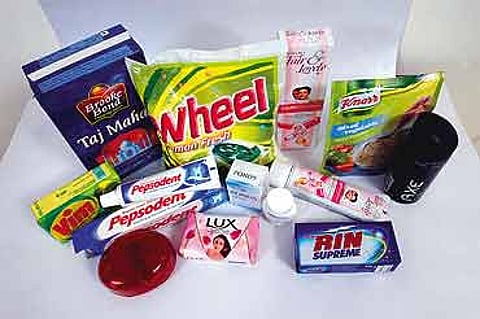In addition, another skill that Baillie will bring to the table is his experience of dealing with large retail networks. It seems only a matter of time before India allows FDI in the retail sector in some form or the other. When that happens, it'll herald the entry of retail giants like Walmart, Carrefoure and Tesco. Doing business with them will prove to be a challenge for FMCG firms as global retail chains force down manufacturers' margins in a bid to cut their prices. So, HLL, which insists its trade with existing retailers hasn't affected realisations, will still need a Baillie to negotiate with the Walmarts.
The retail drive is important in another context. HLL has suffered due to moves made by its arch-rival, Procter and Gamble, which declared a sudsy war by slashing prices of its detergent brands, Ariel and Tide, by nearly 40 per cent in 2004. Soaps and detergents contribute 42 per cent of HLL's Rs 10,000 crore sales in India and, therefore, the impact on its bottomline was significant (forced as it was to respond with a matching cut on flagship brand Surf). The result: current margins in its soap business are nearly 10 percentage points lower than 2003. This may fall further after the entry of powerful global retail chains. Only an expert like Baillie may be able to stem this tide of thinning margins. However, an HLL spokesperson says the company is not worried about such developments as "modern trade prefers to deal with the market leader or number 2 player.... And HLL being the leader in most of the segments or a strong No. 2 in others is well-positioned to take advantage of this preference."
But Baillie's achilles heel is likely to be HLL's foods business which, in the case of Unilever, contributes 54 per cent of global sales. In India, the foods division has not really taken off. "Foods is a case of missed opportunities for HLL. It could have done more with its Modern Foods' acquisition," says an analyst. Despite having the first-mover advantage over ITC, HLL was unable to make a dent in the branded commodities business. While the nimble-footed ITC has successfully forayed into biscuits and ready-to-eat packaged food, HLL's experiments like the Annapoorna readymade Chappatis and 4 o' clock Tiffin have been non-starters. However, the HLL spokesperson feels "the market is reaching an inflection point beneficial for the foods business...and HLL is well-positioned to leverage this opportunity."
The new CEO's job will become more difficult as he will not have the support of the two existing MDs, Arun Adhikari, who heads the personal care products division, and S. Ravindranathan, who is in charge of the foods one. While Adhikari is off to Japan, the latter is slated to retire soon. "It's surprising that HLL has sent Adhikari to head Unilever in Japan. It could well be to get him to vet an overall corporate role before he takes over in India," speculates Nikhil Vora of the Mumbai-basedSSKI. But HLL's executives feel that there'll be little impact as the new national management committee will be soon in place, and the depth of leadership talent within HLL has never been in short supply.
Several analysts, bullish about HLL's fortunes, say that with judicious price increases, large-scale product innovations and a back-to-basics approach in marketing—all three supposedly part of Baillie's new strategy—can lead to a healthy growth phase for HLL as early as in 2007. That should please the not-so-happy investors, who saw the scrip plummet to a seven-year-low not too long ago, but have always regarded the HLL shares in their portfolio as the "bluest of the blue chips".
Lalithaji Gets A Tan
A worried Unilever brings in their own man to get back the froth at HLL

Published At:
Tags